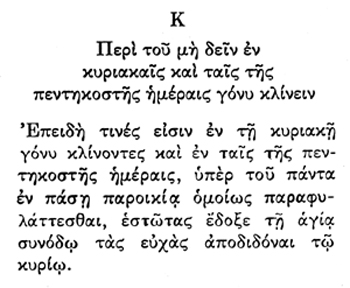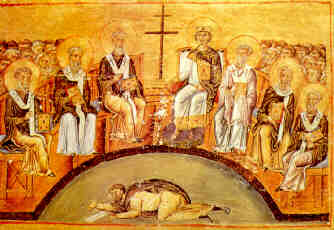About not needing (may de-een) kneeling, on Sundays and in the 50 days of Eastertime:
There are some people who kneel down on Sunday and during the Easter season, the fifty days from Easter Sunday to Pentecost Sunday. Therefore, it has pleased the holy Council to decree that people should offer their prayers to the Lord, standing. This is required so that in each diocese (en pase paroikia) everything will be done in harmony (omoiohs).
(Canon 20 of the Council of Nicea, 325 A.D., binding on the whole Church)





 top
top